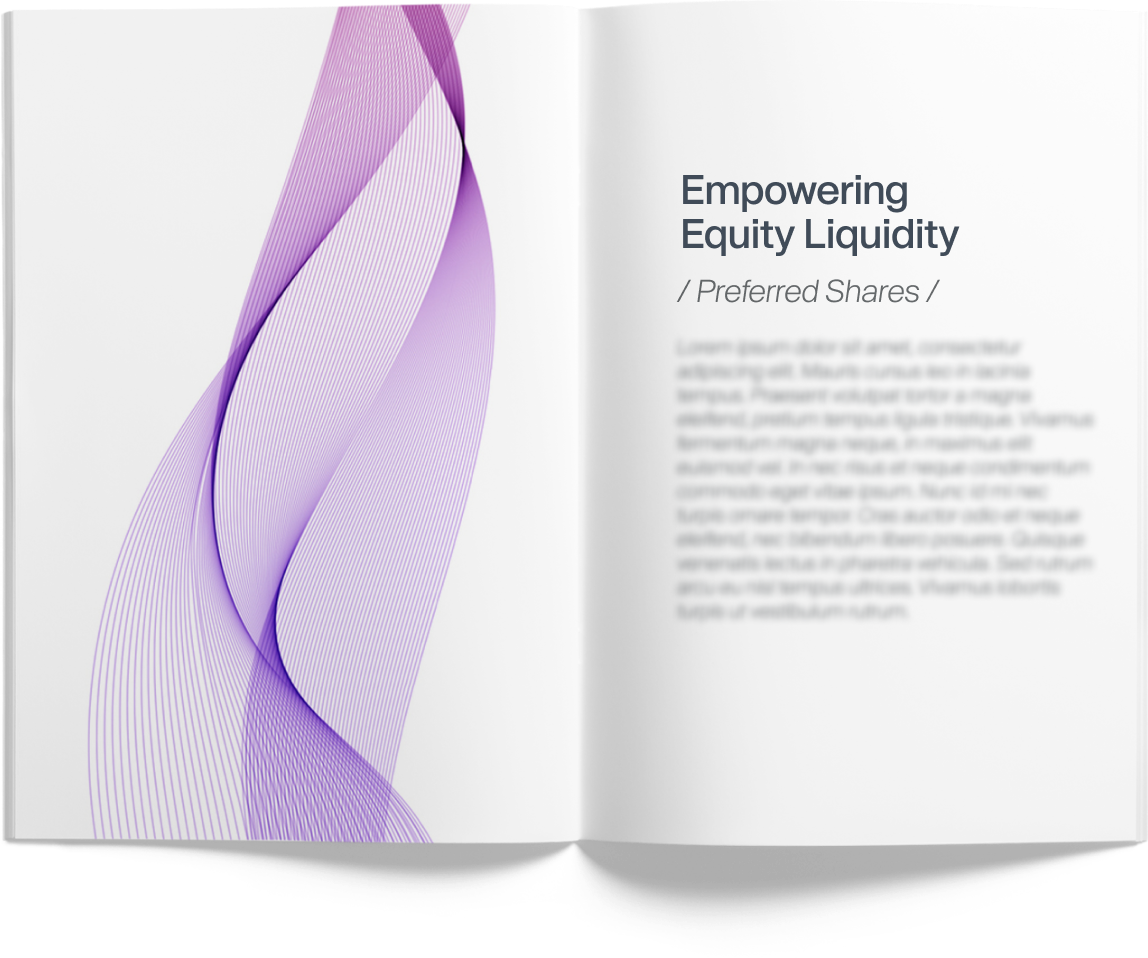Private Market Glossary
What are preferred shares?
Preferred shares are shares of a company that typically receive priority for dividends or liquidations before common shareholders and may also carry other rights that holders of the company’s common stock lack. In many cases, preferred shares, also known as preferred stock, have bond-like characteristics, especially at public companies. Still, preferred shares are equity stakes. However, the terms of preferred shares can differ from company to company.

A better understanding of preferred shares
Preferred shares can mean different things in different situations, but the general reason why they’re called preferred is that these shareholders would typically receive dividends or liquidation payouts before common shareholders, which could come in handy in the event a company faces financial difficulties and needs to liquidate. Preferred shares also often carry other rights that holders of the company’s common stock lack.
Private market investors, such as venture capital funds, often receive preferred shares of private companies, while employees generally receive common stock. In contrast, preferred shares might be available for purchase on a more general basis at public companies. Depending on the terms that a company offers, preferred shares might have reduced or nonexistent voting rights. However, this tends to be more common at public companies, while private company preferred shareholders might retain or have increased voting rights, as well as potentially have benefits like anti-dilution protection.
What role do preferred shares play in the private market?
Preferred shares are a class of shares that give private market investors the opportunity to potentially reduce risk.
By having a priority claim to dividends or liquidations, preferred shareholders can potentially still get at least some of their money back in the event that a startup does not succeed. Plus, potential benefits like anti-dilution measures, which can limit the extent to which existing preferred shareholders have their stakes diluted when a company takes new funding (which generally requires issuing new shares to the new investors), can help protect the value of preferred shares. So, private market shareholders likely want to clarify if they have common stock or preferred stock, as that can influence the shares’ value. A private market investor might be more willing to take a chance on a high-risk/high-reward startup, for example, if they can receive preferred shares.
What are some examples of preferred shares?
Preferred shares can come in different forms, such as:
- Convertible: Convertible preferred shares have the option to convert to common shares, which could be beneficial if a startup eventually has an initial public offering (IPO), for example.
- Non-Convertible: In contrast to convertible preferred shares, non-convertible preferred stock does not convert to common stock.
- Cumulative: Cumulative preferred shareholders retain the right to receive past dividends owed if a company suspends dividends, before the company can then start paying out dividends again to common shareholders.
- Non-Cumulative: Non-cumulative preferred shares do not receive back pay for missed dividends, unlike cumulative shares.



